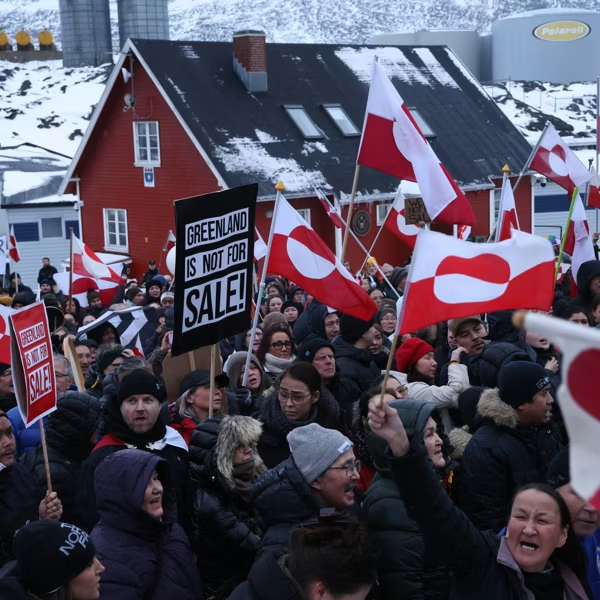The polar bear--stranded on a shrinking ice floe and struggling to survive as global warming melts its Arctic habitat and limits its access to prey--has become one of the iconic symbols of climate change.
But beyond the poignant symbolism, the truth remains this: the polar bears are in big trouble.
According to a new study published in the current issue of Ecological Applications, the polar bear population in eastern Alaska and western Canada has declined approximately 40 percent in recent years.
"Global warming has put Alaska's polar bears in a deadly downward spiral. It's happening now, it's killing polar bears now, and if we don't act now, we will lose polar bears in Alaska."
--Sarah Uhlemann, Center for Biological Diversity
The investigation, conducted by a team of researchers from the U.S. Geologic Survey (USGS), Environment Canada, and other groups, found that the Southern Beaufort Sea polar bear population (one of just two polar bear populations in the U.S.) has dropped to just 900 bears, a severe decline since the last estimate in 2006 that documented more than 1,500 bears.
In addition, just two of 80 polar bear cubs that the international team tracked between 2004 and 2007 survived, according to Jeff Bromaghin, USGS research statistician and lead author of the study. Normally about half of the cubs live.
The scientists hypothesized that low survival directly resulted from "unfavorable ice conditions that limited access to prey during multiple seasons," among other factors. "[T]he thinning and increasingly mobile winter ice is susceptible to breaking up and rafting, which can create rough and jumbled ice conditions that may make it harder for polar bears to capture seals," according to a USGS press release.
"Here are concrete numbers to show us that the impacts of climate change are happening now," declared Margaret Williams, managing director of World Wildlife Fund's Arctic Program. "We need to change course if we want to stop further habitat loss and ensure resilient wildlife populations, both in the Arctic and around the world."
To that end, conservation groups are working to strengthen polar bear protections in the U.S. and worldwide. In 2008 the U.S. designated polar bears as "threatened" under the Endangered Species Act, predicting that more than two-thirds of the world's polar bears would be extinct by 2050. However, environmentalists say mounting evidence, including this most recent study, indicates polar bears deserve stronger "endangered" species protections.
"Global warming has put Alaska's polar bears in a deadly downward spiral," said Sarah Uhlemann, the Center for Biological Diversity's international program director. "It's happening now, it's killing polar bears now, and if we don't act now, we will lose polar bears in Alaska."
The report notes that "given projections for continued climate warming," species adaptation is "unlikely to counterbalance the extensive habitat degradation projected to occur over the long term."
And so polar bears will continue to serve as harbingers climate change.
"We're very worried that eastern Alaska's polar bears may be among the first to go," Uhlemann added. "The United States and the world have to get serious about reducing greenhouse gases if we want polar bears to survive."
In addition, the Center for Biological Diversity pointed out that despite the polar bears' "threatened" designation and increasing peril from global warming, polar bear hunting remains legal. While the United States only permits native subsistence hunting, Canada continues to allow both sport-hunting and hunting for the rug trade. In fact, CBD says, Canadian polar bear hunting is on the rise, as fur prices have skyrocketed, tripling since 2007. Nations will be considering a total ban on commercial trade in polar bears in 2016.



